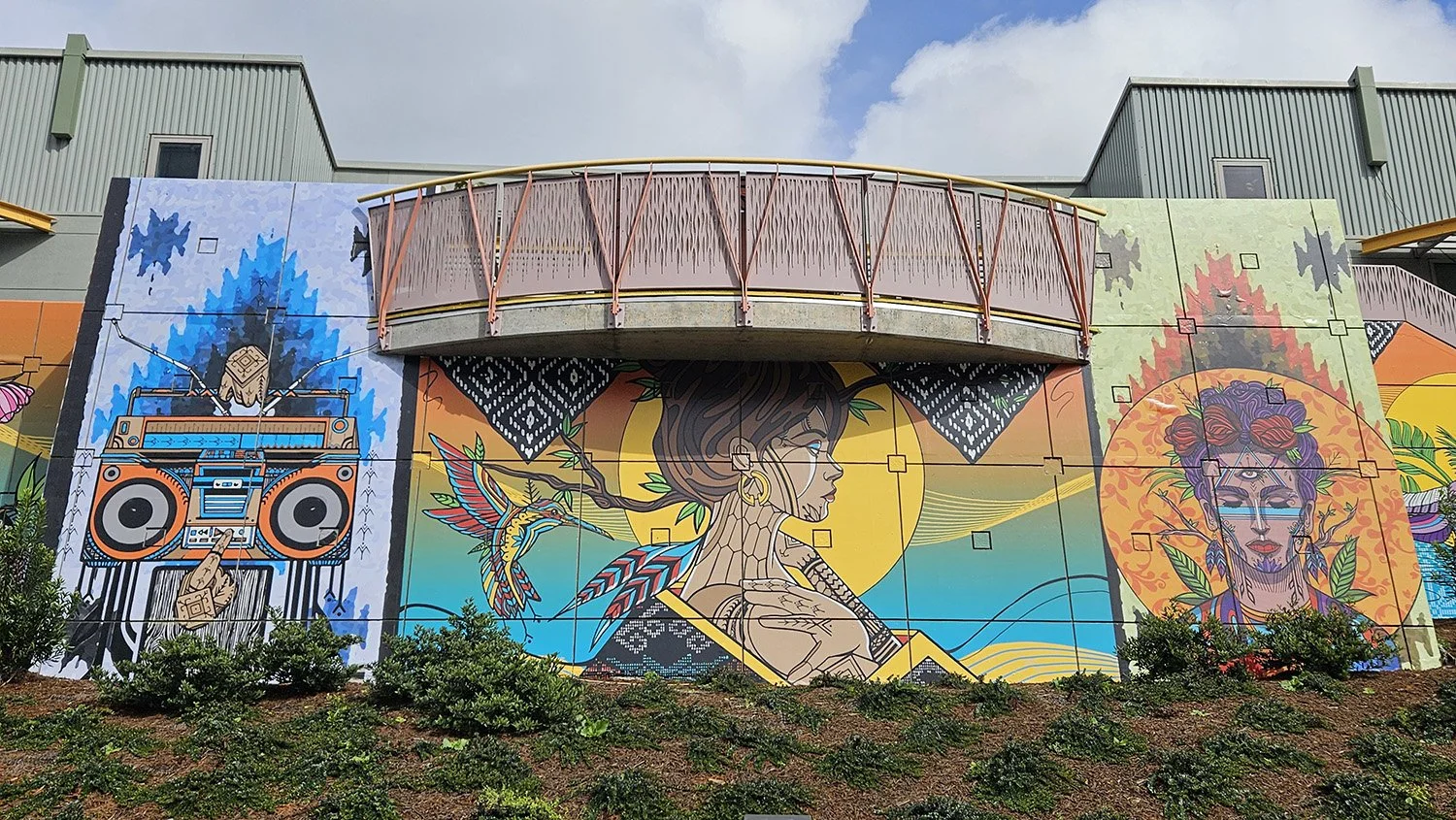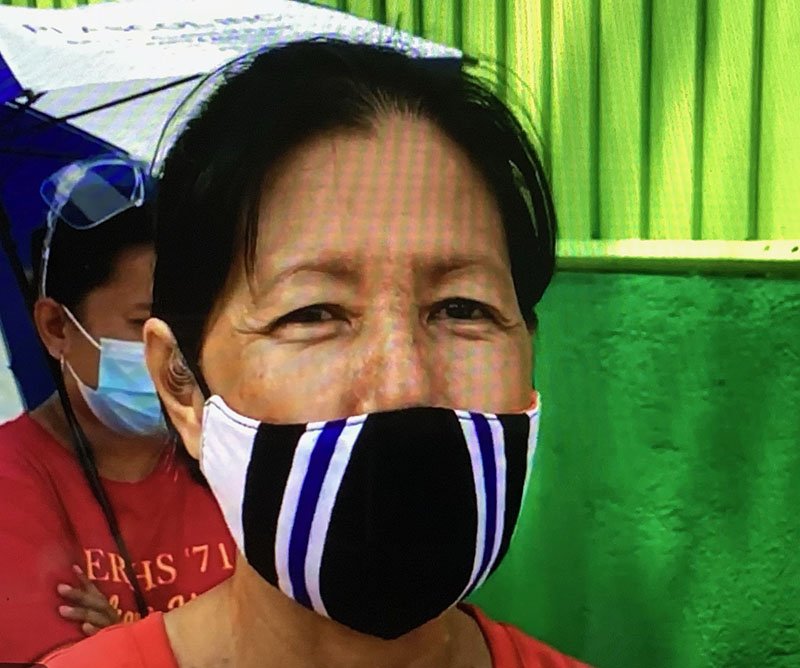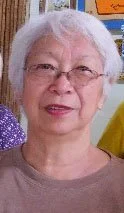Vicky W and Kabisig ng Kalahi’s Story
/Mga nanay sa Calatagan (mother participants of Kabisig in Calatagan, Batangas)
We had the privilege of visiting the beginnings of another Kabisig ng Kalahi NGO project, this one in Calatagan, Batangas with founder, Vicky Vergara Wieneke and representatives of the Local Government Unit, Barangay Officials, Department of Social Welfare and Development and Enrique Zobel/Mahalina Foundation as monitoring team partner, along with Sigma Delta Phi Batch 63 as sponsors. We met many of the mothers in the community, who were excited about participating in the program that would help them learn survival skills, specifically, how to feed their families.
Beyond the Sigma Delta Phi sisterhood as a natural support connection, many private sector partners, business and corporate sponsors, various National Government Agencies (NGA) and Local Government Units (LGU) have reinforced the program.
Vicky
Vicky V. Wieneke
We are proud of NGO founder and sorority sister Vicky V. Wieneke. She had always lived a comfortable life. Upon graduation, she launched a successful manufacturing business for fashion collections produced by famous designers. For 30 years, this business thrived with the help of her well-trained staff, and supported by big-name department stores and outlets like Rustan’s, SM, Landmark, etc. Amid heavy demand and busy schedules, Vicky’s social environment consisted of the wealthy and mighty. Although fun and certainly profitable, at times this brought a sense of unease and stirred up a reassessment of the use of her energy and resources.
During the years of protest in 2001 to 2007 against a government accused of plunder, Vicky had a sharpened awareness of the less fortunate and the desire to help them improve their lives. Protest was not enough. She decided to actively help those who were suffering, especially the children who were hungry, mired in poverty. Other like-minded groups also felt the need to alleviate the situation by carrying out practical actions like feeding the poor. However, besides short-term activities, Vicky wanted a more organized structure that would empower the poor toward self-reliance.
The “how” was a bit more challenging than she and her limited resources could achieve. But her belief in helping others was clear and strong. Before giving up her business she donated her supplies and equipment to her now well-trained staff to start a similar business on their own.
Willingness to learn and the birth of Kabisig
Vicky contacted the late Dinky Soliman, Secretary of Department of Social Welfare and Development (DWSD), renowned anti-poverty activist and successful implementor of social welfare programs during the Macapagal Arroyo era. She informed Soliman of her plans to help malnourished children. Moreover, she asked her advice on how to establish a legal structure to do this, how to define and successfully implement the health objectives, how the program could contribute to national goals and, lastly, she asked for technical support to reach the beneficiaries at the barangay level. The Government, through Soliman, gave its blessing and assigned one staff member to initiate Kabisig’s efforts. The NGO Kabisig was born.
With an initial 40,000 pesos of her own funds, she started a feeding program for 30 children, gathering baseline data on their health status, and later evaluating the impact of the program’s nutritional inputs. It was an impressive success, and gradually, those who learned of the program became partners or sponsors - multinational corporations, local companies and civic organizations. Unilever eventually became a significant donor. Vicky was fortunate that she had enough resources to live by, despite giving up her productive business. Whatever funding support was given to the NGO went to necessary administrative expenses, including staff salaries. Neither Vicky nor Kabisig’s working board trustees were salaried. In fact, they contributed much from their own pockets.
Initial activities
In the first ten years, Kabisig provided supplemental feeding for children up to three years old, initially for 30 families. Success was measured from data on weight gain before and after interventions. Feeding eventually expanded to include children of school age, so they may be healthy enough to stay in school and improve their learning skills.
Aside from monitoring the program, staff engaged with the community by listening to their needs, showing care and compassion and instilling civic and family values. Additional support were provided to students. Although not a major part of the program, tuition assistance was given to bright and deserving youth.
One success story is that of Henry De Jesus, who was outstanding at crafts in a Kabisig livelihood project, doing hand embroidery, which was unusual for men. Henry received tuition from Kabisig to attend Batangas State University. Given his diligence in furthering his education, the University gave him free tuition, and Kabisig supported his living and school needs until he completed a degree in Accounting and Auditing, with honors. Henry was able to go abroad and is paying it forward by financially helping his siblings and poor relatives to get proper education.
Responding to the times and the Food Sharing Program (FSP)
In 2019, at the start of the pandemic, life was especially difficult, and people did not go out much. Small businesses closed, families could not earn a living, children were hungry. "Zero balance," says Michelle, one of the mothers in the program. Amid this desperation, the Food Sharing Program came to be. Communities were identified based on certain criteria that proved their willingness to learn and work for the inputs provided. Rice, mung beans and additional inputs like cooking oil were provided to help the families who agreed to work. This was essential to ensure the sustainability of the program.
Michelle
Kabisig and staff taught the mothers like Michelle to plant vegetables for her family. The empty plot of land in their backyard had tall grasses and it seemed inconceivable to plant anything that would grow. Seeds were provided, other partners like the local government units and Barangay Health workers helped monitor the program and the Department of Agriculture provided soil and fertilizer. Eventually, all the back-breaking work of tilling the soil paid off as the plants thrived and became an attraction in the neighborhood as a model garden. Mothers found it worth all the hard work when they harvested the vegetables to feed their families. Through trial and error, they were able to create conditions that would make plants grow even if they had no experience before. They were impressed that people with authority cared for and supported their efforts. They were happy to get out of the house and cultivate, to socialize with others and not worry about where the next meal was coming from. Another parent, Nanay Teresa felt they were healthier, and that they were able to exercise from the weeding and gardening. They were exposed to sunshine and fresher air outside instead of being cooped up inside their houses. There are many more Michelles and Teresas who are happier, healthier because they have healthier, happier children.
Nanay Teresa
Practical livelihood training assistance is another enriching activity of the Food Share Program. Workshops, skills training, market link-up are done to make sustainable improvement of the lives of the family beneficiaries. In Paete, talented youth received training in woodworking, and income from products helped their families. Other places provided similar training, such as marble carving for the quarrying industry in Romblon,
Sometimes planting sites are difficult to identify.
Often, they have to be created.
Hope grows in a garden
The rewards of harvest from one's efforts.
To enhance learning, Kabisig set up libraries called Karunungan Centers, with donated supplies, such as books, cell phones and computers for the use of the students in the community.
Kabisig partners and going to scale
Kabisig’s major partners -- DSWD, Department of Education, Department of Science and Technology -- remain. Other line agencies like National Economic and Development Authority, National Nutrition Council, the Department of Agriculture, TESDA (Technical Education and Skills Development Authority) etc. have recognized and supported the Kabisig program with technical assistance in recognition of this NGO’s contribution to the common national goals of a healthier, self-reliant nation.
As Kabisig’s successful programs and geographical reach grew, many private partners came to the fore, including civic clubs, humanitarian service organizations, parishes, Zonta/ Rotary clubs, private groups and individuals. Kabisig also helped big corporations and foundations with their nutrition programs by sharing best practices and relevant information.
Through the years, Kabisig, represented by its leader and founder, Vicky Wieneke, has been honored for its contribution to nation-building through all administrations, receiving hundreds of awards.Vicky has been invited to national and international conferences and has participated as a member of boards to share the experiences and lessons of Kabisig.
Kabisig USA
Kabisig USA was born as the advocacy arm of the Philippines Kabisig ng Kalahi, which accepts US funds for the NGO and enables tax breaks for foreign donations. There is no active fund-raising as such, but funding support comes naturally from those who have witnessed the success of the program. Kabisig USA, is headed by Didy Malabuyo '63. (https://www.kabisigusa.org/)
The most significant contributions of Kabisig to nation-building are the methodologies and good practices adopted by others, enabling the program to expand nationally. With Kabisig, other inspired organizations and Vickys, there will be more Michelles, Teresas and Henrys who can make our people and country better.
Gia R. Mendoza worked as an international civil servant for many years, lived in New York, South America, West Africa, South and East Asia. She is now retired in Florida. She enjoys writing and painting and taking afternoon siestas.
More articles from Gia Mendoza











